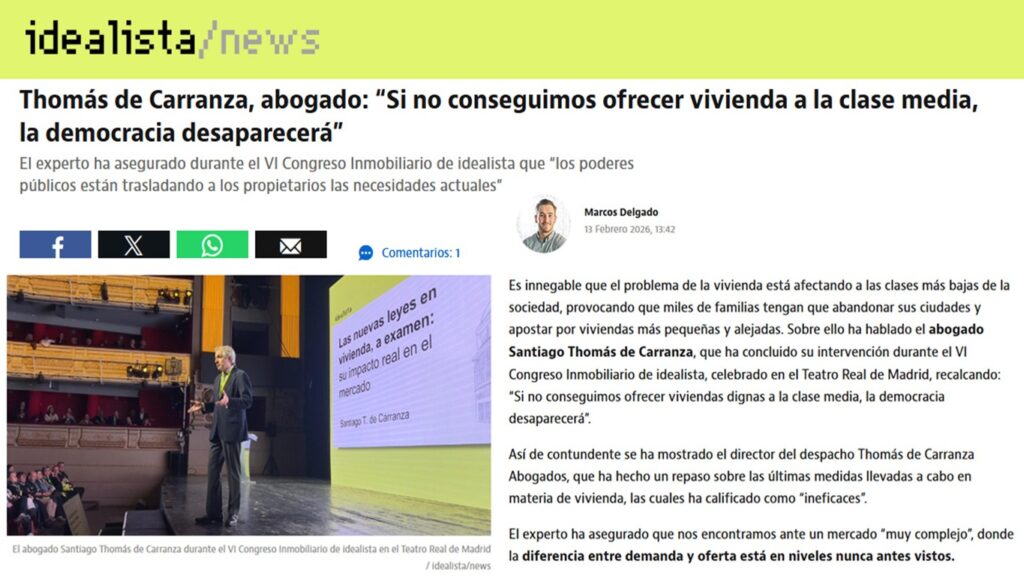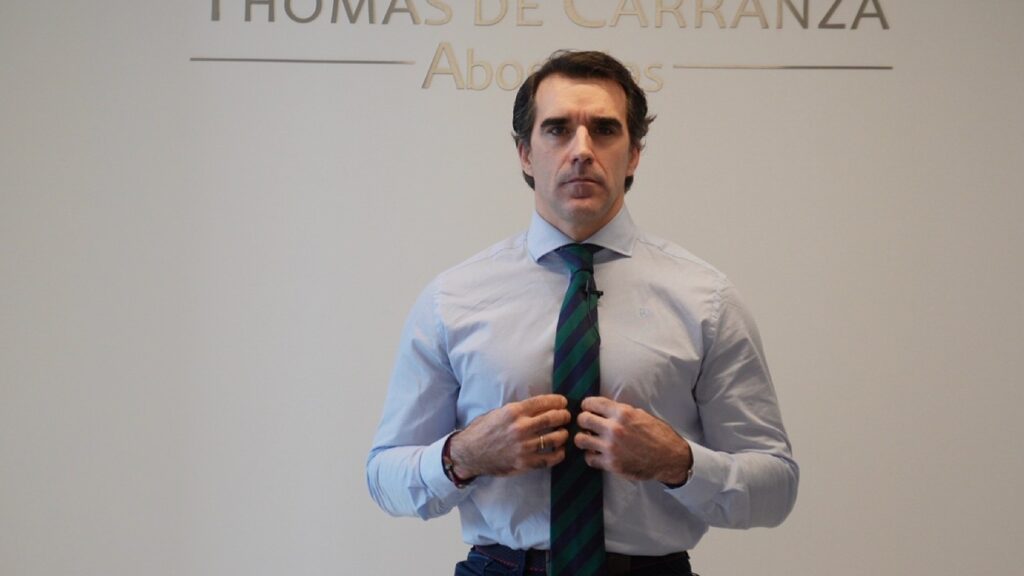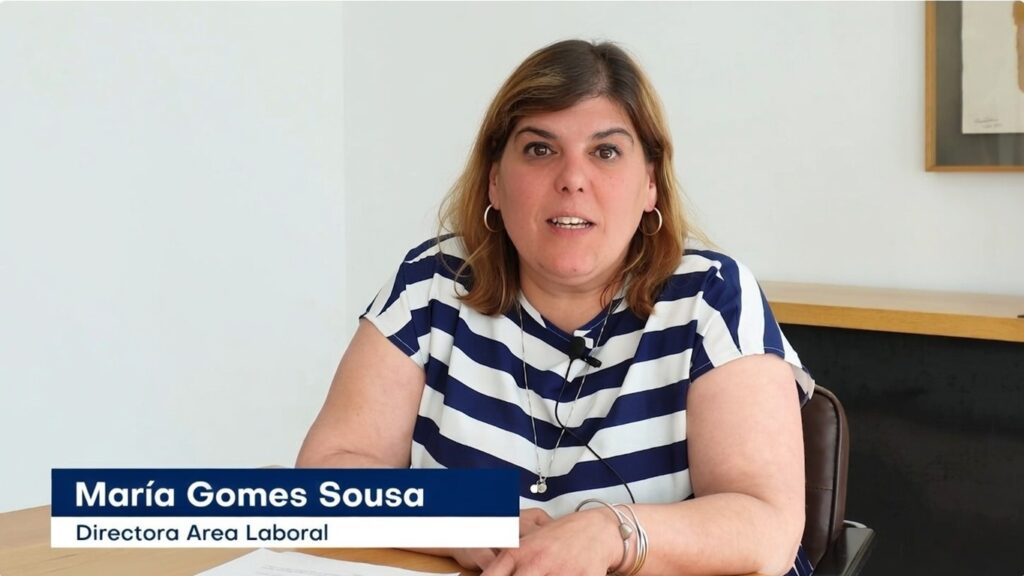
Santiago Thomás de Carranza, managing partner of the firm that bears his name, has participated in the program Con I de Inmobiliario, of Radio Intereconomía where he has analyzed the situation of the housing market in Spain one year after the entry into force of the Law that regulates it.
During his conversation with Elena Fraile, director of the program, Thomás de Carranza pointed to public-private collaboration as one of the keys to making the Housing Law work: “it is the first thing that should have been done, to sit down with those who can solve the problem, who are the ones who build the houses”. To this end, it advocates agreements that allow the necessary housing to be built with effective measures for all parties. This would entail, for example, “streamlining administrative procedures, seeking formulas in which houses could be built at affordable prices, such as, for example, that during the first 20 years they would be under official protection and then they could be converted to free housing, guarantees, loans or tax benefits, among others”.
Throughout the interview, Santiago Thomás de Carranza emphasized the importance of housing, considering it “a basic fundamental element, on a par with education, health or pensions”. For this reason, he considers the results to be particularly serious, “even more so when the Bank of Spain states that 600,000 homes will be needed by 2025 and the Government goes even further, raising it to one million”.
For the managing partner of Thomás de Carranza Abogados, it is an “unfinished and hasty law that has failed because if its main motive was to facilitate access to decent housing at reasonable prices, the result is that it has excluded very important sectors of the population, such as young people or vulnerable groups, from the purchase market”.
Thomás de Carranza also made reference to the legal uncertainty caused by the Law, “since the restrictions on the enforcement of contracts lead to less supply and an increase in housing prices, harming those who have the least”.
During the interview, he also indicated that the current system shifts the responsibility for the lack of rental housing to the owners, ignoring the fact that in 95% of the cases, these are middle class people who see renting as a way to improve their income or to improve their pensions when the time comes.
Access to the complete interview: https://tc-abogados.es/videos/




